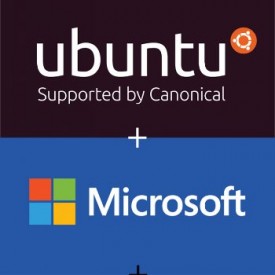The day has changed, but the commentary remains the same: In a minor FOSS Force shuffle, I’ve moved from giving commentary on Wednesdays to giving it on Mondays. And while there is no one item that stands out in a grand way to start the week, there’s no reason we can’t begin the week with several smaller items, right?
 LibreOffice has won, get over it: Last week, I innocently posted an article on Facebook about LibreOffice’s fifth birthday — yes, it has been five years, surprisingly — and for some reason it ran into some resistance from one friend who isn’t exactly too fond of the name “LibreOffice” — “Libre isn’t English” (huh?) — and he seems to think that the remnants of OpenOffice are better served if the LibreOffice folks just fold up their tent and rejoin OpenOffice. Yeah, I laughed too. That’s not going to happen because, for all intents and purposes, OpenOffice was fatally poisoned as soon as Oracle got a hold of it, making the LibreOffice fork necessary. If anything, OpenOffice developers should drop OpenOffice and join LibreOffice. Anyway, happy 5th, LibreOffice.
LibreOffice has won, get over it: Last week, I innocently posted an article on Facebook about LibreOffice’s fifth birthday — yes, it has been five years, surprisingly — and for some reason it ran into some resistance from one friend who isn’t exactly too fond of the name “LibreOffice” — “Libre isn’t English” (huh?) — and he seems to think that the remnants of OpenOffice are better served if the LibreOffice folks just fold up their tent and rejoin OpenOffice. Yeah, I laughed too. That’s not going to happen because, for all intents and purposes, OpenOffice was fatally poisoned as soon as Oracle got a hold of it, making the LibreOffice fork necessary. If anything, OpenOffice developers should drop OpenOffice and join LibreOffice. Anyway, happy 5th, LibreOffice.
Larry Cafiero is a journalist and a Free/Open Source Software advocate and is involved in several FOSS projects. Follow him on Twitter: @lcafiero






 The Linux desktop environment. Environments such as Unity, KDE, Mate, Cinnamon, etc.
The Linux desktop environment. Environments such as Unity, KDE, Mate, Cinnamon, etc.


 LibreOffice has won, get over it: Last week, I innocently posted
LibreOffice has won, get over it: Last week, I innocently posted 
